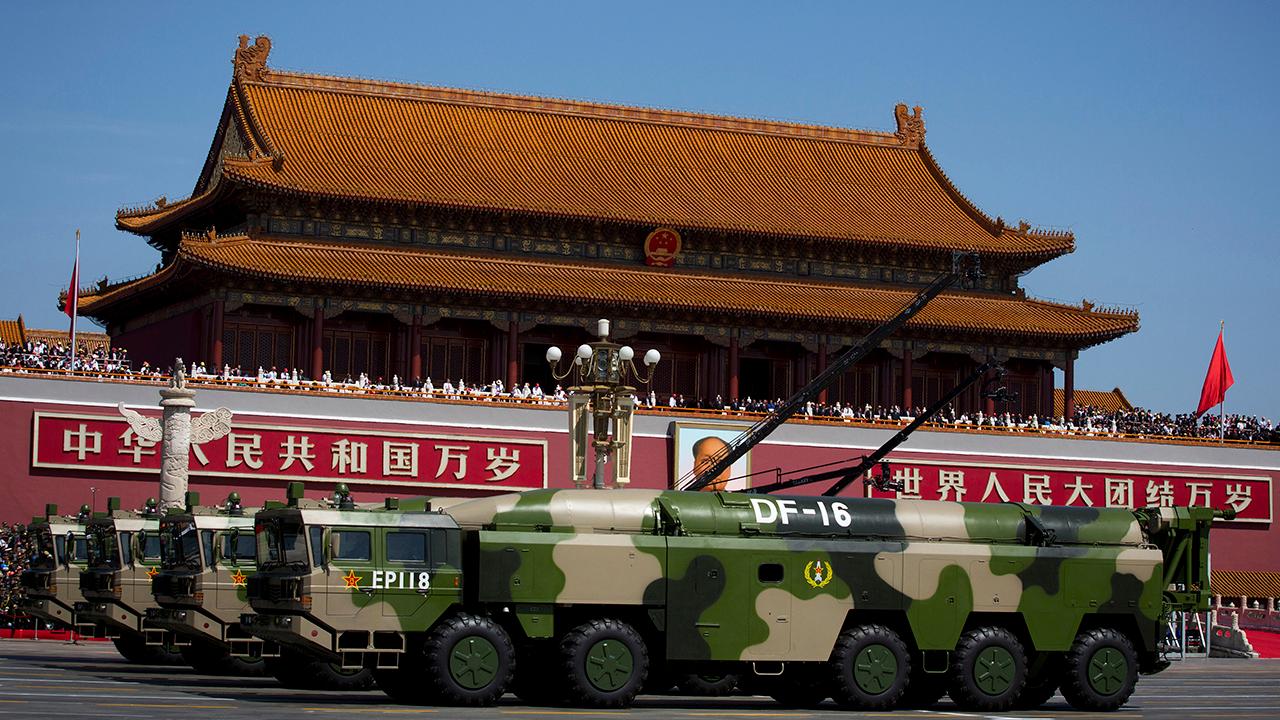Trump absolutely right to slap new tariffs on China
President Trump on Sunday announced additional incoming tariffs on China, reminding Beijing that its days of negotiating with weak counterparts are over, at least as far as it concerns the United States.
While Trump’s move may cause short-term stock market turbulence, it’s great news for U.S. national security and our economy over the longer term. China’s communist government must now recognize that time is short to avoid prolonged pain for its economic aggression and malfeasance.
Specifically, Trump announced on Sunday via Twitter that his administration will increase tariffs on $200 billion worth of imports from China from 10 percent to 25 percent, effective this Friday.
That would mean we will have the higher 25 percent tariff rate on a combined total of $250 billion worth of Chinese imports—46 percent of the $540 billion in goods we imported from China in 2018. Trump also threatened to slap tariffs on the remaining half of imports yet to face higher levies.
China’s ability to retaliate is extremely limited since our trade relationship is so lopsided and stacked in Beijing’s favor: we exported only $120 billion in goods to China last year—less than a quarter of what we imported from them.
Trump took the unexpected action because China is reportedly dragging its feet in trade talks. Beijing has been conditioned over decades to expect American negotiators to cave in on contentious points.
Reprising this pathetic attitude of yesteryear, former Vice President Joe Biden claimed last week that China’s government “is not competition for us” and that “they’re not bad folks.” This thinking is how our elites have rationalized selling out America to China—something Wall Street would like to see continue.
Trump refuses to follow this flawed model, and has held firm in negotiations that cover topics including Beijing’s cyber intrusions, market-distorting subsidies and state-owned enterprises, forced transfer of U.S. business technology, outright theft of intellectual property, currency manipulation, and export of deadly fentanyl.
Most crucially, Trump and his top aides are wise to the fact that the Chinese government has violated every agreement it has made with the United States and our allies. For example, China reneged on promises not to militarize the South China Sea and to stop cyber attacks against us. It also went back on its promise to Great Britain to respect the freedom and relative autonomy of Hong Kong.
Trump is well aware of the high probability that Beijing will cheat on any deal. That is why his negotiators have insisted that U.S. tariffs remain on Chinese goods until they demonstrate changed behavior—not just promise to change as they have in the past.
That has been a sticking point in talks with China’s diplomats, who are used to western leaders accepting a deal for the happy photo op it produces, and then overlooking Chinese noncompliance. Clearly they are used to getting their way. A headline in the South China Morning Post earlier this year boasted: “China’s team of crack trade negotiators will extract their ‘pound of flesh.’”
But Trump has stuck to his guns. Treasury Secretary Steven Mnuchin said last week that the trade team soon would “either recommend to the president we have a deal or make a recommendation that we don’t.” Increasingly, it looks like the latter conclusion may carry the day given Chinese intransigence and duplicity.
CLICK HERE TO GET THE FOX BUSINESS APP
Rather than cave in or walk away, Trump has cranked up the pressure on China with the new tariffs, and given Beijing another chance to understand the old days are over for good. Either they shape up or face the consequences of more economic pain, as they help fill the coffers of the U.S. Treasury through higher tariffs.
Christian Whiton was a senior advisor in the Donald Trump and George W. Bush administrations. He is a senior fellow for strategy and public diplomacy at the Center for the National Interest and the author of “Smart Power: Between Diplomacy and War.”




















